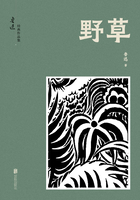At the sight of this agitation Louis XVIII. pushed from him violently the table at which he was sitting.
"What ails you, baron?" he exclaimed. "You appear quite aghast. Has your uneasiness anything to do with what M. de Blacas has told me, and M. de Villefort has just confirmed?" M. de Blacas moved suddenly towards the baron, but the fright of the courtier pleaded for the forbearance of the statesman; and besides, as matters were, it was much more to his advantage that the prefect of police should triumph over him than that he should humiliate the prefect.
"Sire" - stammered the baron.
"Well, what is it?" asked Louis XVIII. The minister of police, giving way to an impulse of despair, was about to throw himself at the feet of Louis XVIII., who retreated a step and frowned.
"Will you speak?" he said.
"Oh, sire, what a dreadful misfortune! I am, indeed, to be pitied. I can never forgive myself!"
"Monsieur," said Louis XVIII., "I command you to speak."
"Well, sire, the usurper left Elba on the 26th February, and landed on the 1st of March."
"And where? In Italy?" asked the king eagerly.
"In France, sire, - at a small port, near Antibes, in the Gulf of Juan."
"The usurper landed in France, near Antibes, in the Gulf of Juan, two hundred and fifty leagues from Paris, on the 1st of March, and you only acquired this information to-day, the 4th of March! Well, sir, what you tell me is impossible. You must have received a false report, or you have gone mad."
"Alas, sire, it is but too true!" Louis made a gesture of indescribable anger and alarm, and then drew himself up as if this sudden blow had struck him at the same moment in heart and countenance.
"In France!" he cried, "the usurper in France! Then they did not watch over this man. Who knows? they were, perhaps, in league with him."
"Oh, sire," exclaimed the Duc de Blacas, "M. Dandre is not a man to be accused of treason! Sire, we have all been blind, and the minister of police has shared the general blindness, that is all."
"But" - said Villefort, and then suddenly checking himself, he was silent; then he continued, "Your pardon, sire," he said, bowing, "my zeal carried me away. Will your majesty deign to excuse me?"
"Speak, sir, speak boldly," replied Louis. "You alone forewarned us of the evil; now try and aid us with the remedy."
"Sire," said Villefort, "the usurper is detested in the south; and it seems to me that if he ventured into the south, it would be easy to raise Languedoc and Provence against him."
"Yes, assuredly," replied the minister; "but he is advancing by Gap and Sisteron."
"Advancing - he is advancing!" said Louis XVIII. "Is he then advancing on Paris?" The minister of police maintained a silence which was equivalent to a complete avowal.
"And Dauphine, sir?" inquired the king, of Villefort. "Do you think it possible to rouse that as well as Provence?"
"Sire, I am sorry to tell your majesty a cruel fact; but the feeling in Dauphine is quite the reverse of that in Provence or Languedoc. The mountaineers are Bonapartists, sire."
"Then," murmured Louis, "he was well informed. And how many men had he with him?"
"I do not know, sire," answered the minister of police.
"What, you do not know! Have you neglected to obtain information on that point? Of course it is of no consequence," he added, with a withering smile.
"Sire, it was impossible to learn; the despatch simply stated the fact of the landing and the route taken by the usurper."
"And how did this despatch reach you?" inquired the king. The minister bowed his head, and while a deep color overspread his cheeks, he stammered out, -
"By the telegraph, sire." - Louis XVIII. advanced a step, and folded his arms over his chest as Napoleon would have done.
"So then," he exclaimed, turning pale with anger, "seven conjoined and allied armies overthrew that man. A miracle of heaven replaced me on the throne of my fathers after five-and-twenty years of exile. I have, during those five-and-twenty years, spared no pains to understand the people of France and the interests which were confided to me; and now, when I see the fruition of my wishes almost within reach, the power I hold in my hands bursts, and shatters me to atoms!"
"Sire, it is fatality!" murmured the minister, feeling that the pressure of circumstances, however light a thing to destiny, was too much for any human strength to endure.
"What our enemies say of us is then true. We have learnt nothing, forgotten nothing! If I were betrayed as he was, I would console myself; but to be in the midst of persons elevated by myself to places of honor, who ought to watch over me more carefully than over themselves, - for my fortune is theirs - before me they were nothing - after me they will be nothing, and perish miserably from incapacity - ineptitude! Oh, yes, sir, you are right - it is fatality!"
The minister quailed before this outburst of sarcasm. M. de Blacas wiped the moisture from his brow. Villefort smiled within himself, for he felt his increased importance.
"To fall," continued King Louis, who at the first glance had sounded the abyss on which the monarchy hung suspended, - "to fall, and learn of that fall by telegraph! Oh, I would rather mount the scaffold of my brother, Louis XVI., than thus descend the staircase at the Tuileries driven away by ridicule. Ridicule, sir - why, you know not its power in France, and yet you ought to know it!"
"Sire, sire," murmured the minister, "for pity's" -
"Approach, M. de Villefort," resumed the king, addressing the young man, who, motionless and breathless, was listening to a conversation on which depended the destiny of a kingdom. "Approach, and tell monsieur that it is possible to know beforehand all that he has not known."
"Sire, it was really impossible to learn secrets which that man concealed from all the world."
"Really impossible! Yes - that is a great word, sir. Unfortunately, there are great words, as there are great men; I have measured them. Really impossible for a minister who has an office, agents, spies, and fifteen hundred thousand francs for secret service money, to know what is going on at sixty leagues from the coast of France! Well, then, see, here is a gentleman who had none of these resources at his disposal - a gentleman, only a simple magistrate, who learned more than you with all your police, and who would have saved my crown, if, like you, he had the power of directing a telegraph." The look of the minister of police was turned with concentrated spite on Villefort, who bent his head in modest triumph.
"I do not mean that for you, Blacas," continued Louis XVIII.; "for if you have discovered nothing, at least you have had the good sense to persevere in your suspicions. Any other than yourself would have considered the disclosure of M. de Villefort insignificant, or else dictated by venal ambition," These words were an allusion to the sentiments which the minister of police had uttered with so much confidence an hour before.
Villefort understood the king's intent. Any other person would, perhaps, have been overcome by such an intoxicating draught of praise; but he feared to make for himself a mortal enemy of the police minister, although he saw that Dandre was irrevocably lost. In fact, the minister, who, in the plenitude of his power, had been unable to unearth Napoleon's secret, might in despair at his own downfall interrogate Dantes and so lay bare the motives of Villefort's plot. Realizing this, Villefort came to the rescue of the crest-fallen minister, instead of aiding to crush him.
"Sire," said Villefort, "the suddenness of this event must prove to your majesty that the issue is in the hands of Providence; what your majesty is pleased to attribute to me as profound perspicacity is simply owing to chance, and I have profited by that chance, like a good and devoted servant - that's all. Do not attribute to me more than I deserve, sire, that your majesty may never have occasion to recall the first opinion you have been pleased to form of me." The minister of police thanked the young man by an eloquent look, and Villefort understood that he had succeeded in his design; that is to say, that without forfeiting the gratitude of the king, he had made a friend of one on whom, in case of necessity, he might rely.
"'Tis well," resumed the king. "And now, gentlemen," he continued, turning towards M. de Blacas and the minister of police, "I have no further occasion for you, and you may retire; what now remains to do is in the department of the minister of war."
"Fortunately, sire," said M. de Blacas, "we can rely on the army; your majesty knows how every report confirms their loyalty and attachment."
"Do not mention reports, duke, to me, for I know now what confidence to place in them. Yet, speaking of reports, baron, what have you learned with regard to the affair in the Rue Saint-Jacques?"
"The affair in the Rue Saint-Jacques!" exclaimed Villefort, unable to repress an exclamation. Then, suddenly pausing, he added, "Your pardon, sire, but my devotion to your majesty has made me forget, not the respect I have, for that is too deeply engraved in my heart, but the rules of etiquette."
"Go on, go on, sir," replied the king; "you have to-day earned the right to make inquiries here."
"Sire," interposed the minister of police, "I came a moment ago to give your majesty fresh information which I had obtained on this head, when your majesty's attention was attracted by the terrible event that has occurred in the gulf, and now these facts will cease to interest your majesty."
"On the contrary, sir, - on the contrary," said Louis XVIII., "this affair seems to me to have a decided connection with that which occupies our attention, and the death of General Quesnel will, perhaps, put us on the direct track of a great internal conspiracy." At the name of General Quesnel, Villefort trembled.
"Everything points to the conclusion, sire," said the minister of police, "that death was not the result of suicide, as we first believed, but of assassination. General Quesnel, it appears, had just left a Bonapartist club when he disappeared. An unknown person had been with him that morning, and made an appointment with him in the Rue Saint-Jacques; unfortunately, the general's valet, who was dressing his hair at the moment when the stranger entered, heard the street mentioned, but did not catch the number." As the police minister related this to the king, Villefort, who looked as if his very life hung on the speaker's lips, turned alternately red and pale. The king looked towards him.
"Do you not think with me, M. de Villefort, that General Quesnel, whom they believed attached to the usurper, but who was really entirely devoted to me, has perished the victim of a Bonapartist ambush?"
"It is probable, sire," replied Villefort. "But is this all that is known?"
"They are on the track of the man who appointed the meeting with him."
"On his track?" said Villefort.
"Yes, the servant has given his description. He is a man of from fifty to fifty-two years of age, dark, with black eyes covered with shaggy eyebrows, and a thick mustache. He was dressed in a blue frock-coat, buttoned up to the chin, and wore at his button-hole the rosette of an officer of the Legion of Honor. Yesterday a person exactly corresponding with this description was followed, but he was lost sight of at the corner of the Rue de la Jussienne and the Rue Coq-Heron." Villefort leaned on the back of an arm-chair, for as the minister of police went on speaking he felt his legs bend under him; but when he learned that the unknown had escaped the vigilance of the agent who followed him, he breathed again.
"Continue to seek for this man, sir," said the king to the minister of police; "for if, as I am all but convinced, General Quesnel, who would have been so useful to us at this moment, has been murdered, his assassins, Bonapartists or not, shall be cruelly punished." It required all Villefort's coolness not to betray the terror with which this declaration of the king inspired him.
"How strange," continued the king, with some asperity; "the police think that they have disposed of the whole matter when they say, `A murder has been committed,' and especially so when they can add, `And we are on the track of the guilty persons.'"
"Sire, your majesty will, I trust, be amply satisfied on this point at least."
"We shall see. I will no longer detain you, M. de Villefort, for you must be fatigued after so long a journey; go and rest. Of course you stopped at your father's?" A feeling of faintness came over Villefort.
"No, sire," he replied, "I alighted at the Hotel de Madrid, in the Rue de Tournon."
"But you have seen him?"
"Sire, I went straight to the Duc de Blacas."
"But you will see him, then?"
"I think not, sire."
"Ah, I forgot," said Louis, smiling in a manner which proved that all these questions were not made without a motive; "I forgot you and M. Noirtier are not on the best terms possible, and that is another sacrifice made to the royal cause, and for which you should be recompensed."
"Sire, the kindness your majesty deigns to evince towards me is a recompense which so far surpasses my utmost ambition that I have nothing more to ask for."
"Never mind, sir, we will not forget you; make your mind easy. In the meanwhile" (the king here detached the cross of the Legion of Honor which he usually wore over his blue coat, near the cross of St. Louis, above the order of Notre-Dame-du-Mont-Carmel and St. Lazare, and gave it to Villefort) - "in the meanwhile take this cross."
"Sire," said Villefort, "your majesty mistakes; this is an officer's cross."
"Ma foi," said Louis XVIII., "take it, such as it is, for I have not the time to procure you another. Blacas, let it be your care to see that the brevet is made out and sent to M. de Villefort." Villefort's eyes were filled with tears of joy and pride; he took the cross and kissed it.
"And now," he said, "may I inquire what are the orders with which your majesty deigns to honor me?"
"Take what rest you require, and remember that if you are not able to serve me here in Paris, you may be of the greatest service to me at Marseilles."
"Sire," replied Villefort, bowing, "in an hour I shall have quitted Paris."
"Go, sir," said the king; "and should I forget you (kings' memories are short), do not be afraid to bring yourself to my recollection. Baron, send for the minister of war. Blacas, remain."
"Ah, sir," said the minister of police to Villefort, as they left the Tuileries, "you entered by luck's door - your fortune is made."
"Will it be long first?" muttered Villefort, saluting the minister, whose career was ended, and looking about him for a hackney-coach. One passed at the moment, which he hailed; he gave his address to the driver, and springing in, threw himself on the seat, and gave loose to dreams of ambition.
Ten minutes afterwards Villefort reached his hotel, ordered horses to be ready in two hours, and asked to have his breakfast brought to him. He was about to begin his repast when the sound of the bell rang sharp and loud. The valet opened the door, and Villefort heard some one speak his name.
"Who could know that I was here already?" said the young man. The valet entered.
"Well," said Villefort, "what is it? - Who rang? - Who asked for me?"
"A stranger who will not send in his name."
"A stranger who will not send in his name! What can he want with me?"
"He wishes to speak to you."
"To me?"
"Yes."
"Did he mention my name?"
"Yes."
"What sort of person is he?"
"Why, sir, a man of about fifty."
"Short or tall?"
"About your own height, sir."
"Dark or fair?"
"Dark, - very dark; with black eyes, black hair, black eyebrows."
"And how dressed?" asked Villefort quickly.
"In a blue frock-coat, buttoned up close, decorated with the Legion of Honor."
"It is he!" said Villefort, turning pale.
"Eh, pardieu," said the inpidual whose description we have twice given, entering the door, "what a great deal of ceremony! Is it the custom in Marseilles for sons to keep their fathers waiting in their anterooms?"
"Father!" cried Villefort, "then I was not deceived; I felt sure it must be you."
"Well, then, if you felt so sure," replied the new-comer, putting his cane in a corner and his hat on a chair, "allow me to say, my dear Gerard, that it was not very filial of you to keep me waiting at the door."
"Leave us, Germain," said Villefort. The servant quitted the apartment with evident signs of astonishment.















